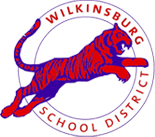English Language Arts (ELA)
Third graders begin reading longer chapter books and using higher-level comprehension strategies. They will:
- Analyze character traits, cause and effect, main idea, and theme
- Use context clues, figurative language, and text features to understand meaning
- Compare and contrast books by the same author
- Identify point of view and make inferences while reading
Spelling & Vocabulary: Students continue developing spelling strategies and build vocabulary that supports stronger reading and writing.
Writing: Third graders apply their writing foundations to create a variety of pieces. They will:
- Use the full writing process (planning, drafting, revising, editing, publishing)
- Write clear, complete sentences with proper grammar and punctuation
- Develop opinion, informational, and personal narrative writing
Math
Third grade students at Turner Intermediate use Eureka Math, which builds deep, connected math knowledge rather than isolated skills.
By the end of the year, students will:
- Master multiplication and division facts
- Solve addition and subtraction problems with 3-digit numbers
- Work with fractions and real-world math problems using all four operations
- Tell and calculate elapsed time
- Explore area, perimeter, and measurement
- Interpret and create graphs
- Work with money, including making change up to $5.00
These skills lay the foundation for more advanced problem-solving in later grades.
Science
Third graders continue to explore the world around them through hands-on investigations using FOSS kits. They will study:
- Plants and Animals: Their properties, functions, life cycles, and inherited traits
- Water and Weather: Properties of water, the water cycle, weather patterns, and how water interacts with Earth’s materials
- Natural Resources: How humans use water and other resources to survive and thrive
Science in third grade helps students make connections between observation, experimentation, and real-world applications.
Social Studies
Third graders expand their understanding of history, government, geography, and community. Students will:
- Learn about the principles, documents, and ideals of the U.S. government
- Understand citizenship rights and responsibilities
- Explore Pennsylvania history
- Study cultures, regions, and physical characteristics of communities around the world
- Read maps using longitude and latitude
- Identify goods, services, consumers, and producers in their community

